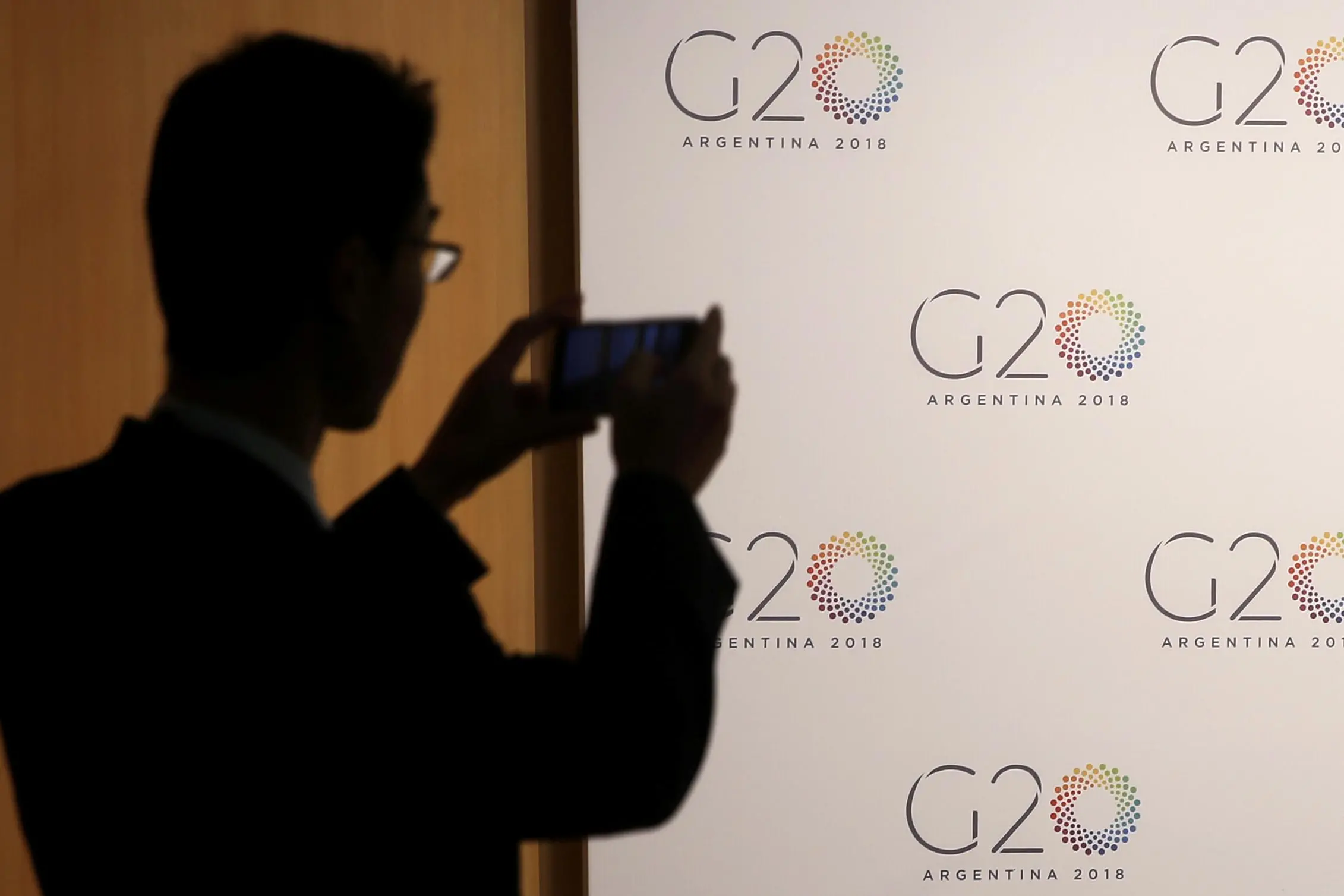PHOTO
Prince Abdul Aziz bin Salman, the Saudi energy minister, has pulled off something of a coup in the delicate world of energy diplomacy with the communique from G20 colleagues issued early on Tuesday.
The wording of these documents, whether from the G20 leaders’ summit itself or from the various specialist tracks the G20 oversees, is often a carefully prepared formula that minimizes differences of opinion — inevitable in a group so large and disparate — and emphasizes the common ground. In the run up to the G20 energy communique, there certainly were differences.
Saudi Arabia, president of the G20 2020, wanted to advance the arguments of its Circular Carbon Economy (CCE) strategy for dealing with harmful environmental emissions. This is a well thought-out policy platform, with weighty intellectual heritage, that essentially says: Don’t put all your energy eggs in one basket.
Yes, like the rest of the world, we are concerned about global warming and climate change, and want to “reduce, recycle and reuse” hydrocarbon products on a planet-changing scale, Saudi Arabia is saying.
But we are also a major producer of hydrocarbon fuels, and want to carry on benefiting from the enormous advantages oil and gas have brought us, and the rest of the world, in terms of economic growth. So let us also find ways to “remove” harmful carbon emissions from the atmosphere as well.
This proposal entirely reasonable it would seem encountered opposition from some G20 members. Some European countries necessarily nameless thought that it conflicted with their aim of reducing the use of hydrocarbons in absolute terms. They were not happy with the inclusion of CCE in the communique.
This stance is hard to understand. By all means, be concerned about climate change and environmental damage; be cognizant of the big changes coming in the energy transition; be mindful of our responsibility to future generations.
But to take a rigid ideological stance against fossil fuels in any form is surely counterproductive, especially in current perilous economic circumstances. When the world does finally begin to pull out of the pandemic, it will want all the affordable energy it can get to fuel recovery. Oil and gas are the sources we will turn to first.
Most big G20 members like the US, Russia and Brazil understood this, and were willing to back the Saudi proposal to keep all our options open, balancing the need for economic growth with the imperatives of climate change.
In the end, the holdouts recalled the great efforts Saudi Arabia and others have made in the initiative to stabilize global energy prices since the oil market collapse of April, as well the enormous resources the Kingdom can bring to bear in the energy transition — and this seems to have done the trick.
When it eventually appeared, the communique was a vindication of the Saudi position. It endorsed CCE as a “a holistic, integrated, inclusive and pragmatic approach to managing emissions,” and noted that “by encompassing the broad range of pathways and options available, CCE takes into account different national circumstances, while striving to meet our shared global aspirations.”
In other words, as the prince had been saying all along: On an issue of such vital importance, let’s keep all our options open. And let’s keep in mind that different countries and economies have different perspectives on the matter, and all are worthy of consideration.
The energy ministers also recognized that there is a lot more work to be done, in particular in the form of investment in the research and development, technology and infrastructures essential to implement the CCE strategy.
But the G20 endorsement of Saudi Arabia’s unique contribution to the debate on climate change is a very welcome first step, and can only enhance the Kingdom’s credentials as a major actor in the great energy transition.
Disclaimer: The content of this article is syndicated or provided to this website from an external third party provider. We are not responsible for, and do not control, such external websites, entities, applications or media publishers. The body of the text is provided on an “as is” and “as available” basis and has not been edited in any way. Neither we nor our affiliates guarantee the accuracy of or endorse the views or opinions expressed in this article. Read our full disclaimer policy here.
© Arab News 2020




















